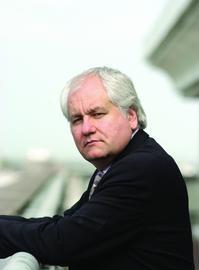in association with Durapipe
Mark Shutler is one of those rare breed who worked his way from shop floor to boardroom. He began as an apprentice at air conditioning manufacturer Denco, and two decades later Shutler bought the company.
His start in engineering was borne out of disillusionment with formal education. “Education was never going to be my strong point, so I went to the careers advisor and asked him to steer me away from it,” says Shutler. He was advised to take up engineering – the kind of hands-on work which had strong appeal to the young man.
“I was 17 when I joined an engineering course at the local college. It was part of what was the Engineering Industrial Training Board, which Denco was involved with. After twelve months sponsored at college I started a four year placement at Denco. They sent me into specialist training linked to the role. This appealed to me far more than general education.”
Shutler took an HND level BTEC at Bath in air conditioning and refrigeration. He also got to try out work in different parts of Denco. At the end of four years’ training, Shutler had found his focus: “I went for the front-line customer facing role using my engineering skills. I felt that without the customer, we don’t have a business. And I wanted to be in touch with where the business was going, by seeing it from the beginning.”
This ambition to lead from the front stayed with Shutler. In twenty five years of working for Denco, Shutler has travelled the UK and the world. In 1993 he was sent to Hong Kong to establish a South East Asian strategy. “It was a real eye-opener, from a personal and business point of view! It was a good learning curve and a career shaping experience.”
In 1999, Shutler rose to be managing director of Denco. At the time, owner Amec was looking to dispose of non-core activities, including manufacturing. The Denco management team was given the opportunity to buy the company. “If as an officer of the business you believe it’s a good business, and you are passionate about the company, then you should want the opportunity to buy it. An officer of the business who doesn’t want it when given the chance must question why they are in that position.”
Since the successful buyout, Shutler has dedicated himself to carrying the company forward. One key point has been the dolphin branding seen on Denco promotions. “I have always been critical of our industry in that we don’t promote ourselves well, and that’s not a good way to attract people to the industry. Investment in marketing is overlooked quite a lot in our sector.
“We came up with an identity which takes us away from pictures of products, but which is an icon people can relate to. I accept that the link with the dolphin is thin – it’s whisper quiet, user friendly and energy efficient – but it’s plausible!”
Shutler places great emphasis on marketing. “In our industry marketing is perceived as a high cost. It’s the same as the training budget, and the two are linked. If more money were spent on marketing it would attract more people into the industry because people would perceive it as a better industry than perhaps they do now.”
For the future, Shutler has his eye on the UK’s burgeoning domestic market. He wants to make air conditioning ‘easy’ for the homeowner, with reliable products, customers speaking to engineers not salesmen, and user-friendly maintenance. Denco has already invested in a 125-strong mobile service team, as well as a factory in Turkey from which Shutler aims to attack European and Middle Eastern markets. Yet again, Shutler demonstrates his hands-on approach with frequent visits to the Istanbul base: “We want them to feel part of the company, not just a factory. Their work ethic is strong, and they really want to make high quality products. They want to be thought of as being on the world platform.”
Looking to the future, Shutler sees the strength of his company in people. “I’m just one of many staff who have been at Denco for over 25 years. That is one of our successes. Continuity of employment is important to us and our clients. If we are to build and grow it will be directly proportional to the good people we employ. We need to get more of these people into building services.
“As manufacturers we need to make our business sexy. We need to demonstrate good use of IT, so young people don’t see working in manufacturing as taking a step back to the 1950s. I want young people to see us as a forward-looking company.”
Source
Building Sustainable Design





















No comments yet